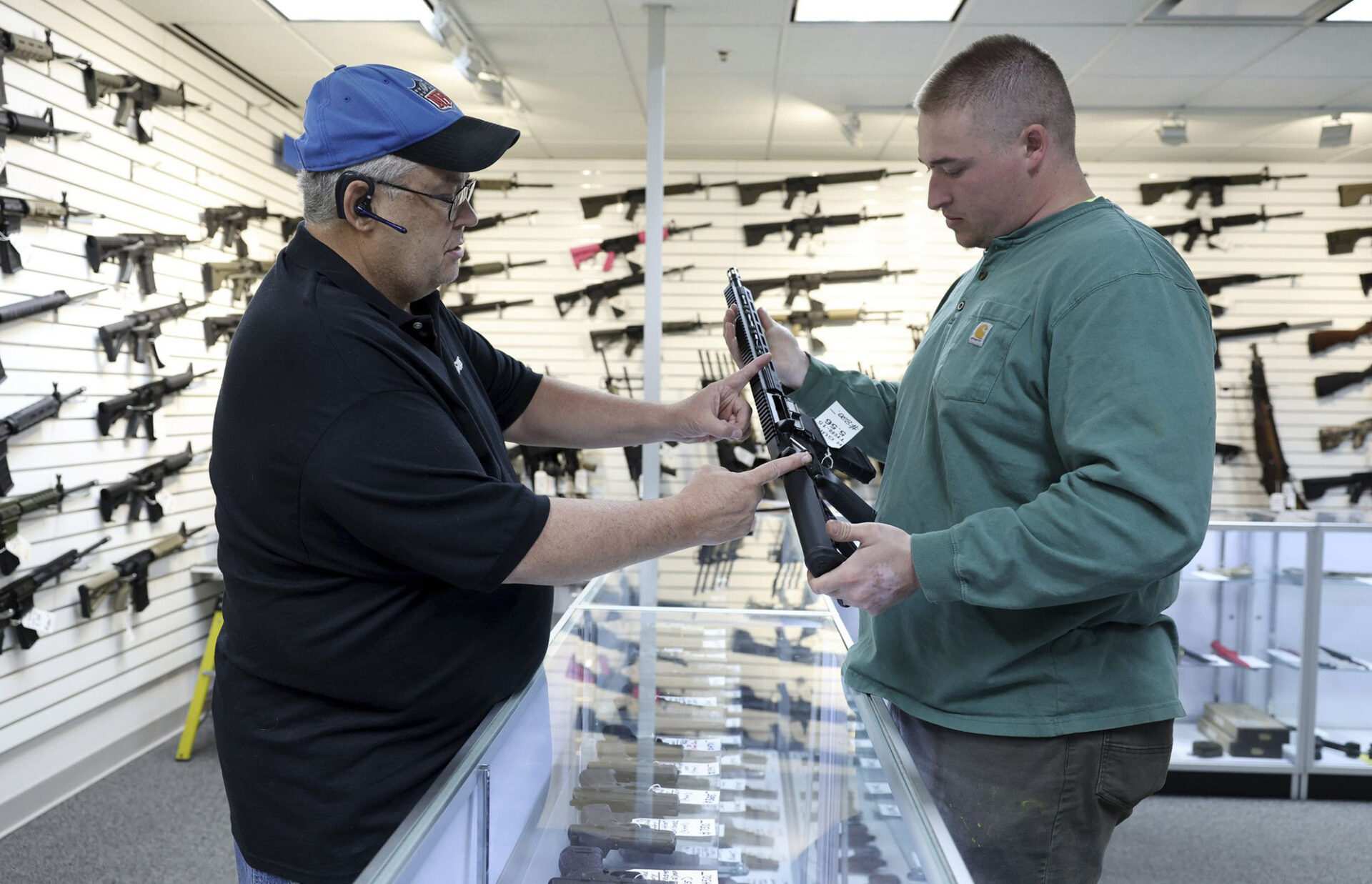
A federal judge in southern Illinois who earlier this year put a hold on the state’s gun ban — a decision that was reversed on appeal — on Tuesday heard arguments on a challenge to the registration process for guns grandfathered in under the law.
U.S. District Judge Stephen McGlynn indicated he was not inclined to issue an injunction that would put off the Jan. 1 deadline for Illinois residents to register guns covered by the ban with Illinois State Police.
“I think that there’s a mess here and there’s some problems, and I haven’t made my mind up,” McGlynn said during a hearing in his East St. Louis courtroom. “But I do think that entering an injunction today may create more problems than it’s worth.”
McGlynn said he was “inclined to deny the motion without prejudice and allow a motion to be renewed if after January 1st we see there’s very little compliance.”
The requirement that residents who owned guns banned as of Jan. 10, 2023, registered them with the state had met stiff resistance, although since the process began in Oct. 1 6,141 gun owners have registered nearly 12,100 guns and about 6,250 firearm parts or other firearm components covered by the ban, according to state records from Dec. 8.
The degree of compliance is impossible to determine, but the number of people who had registered as of Dec. 8 represented just a little over 0.25% of the 2.4 million people in the state holding FOID cards, the state-mandated permits that authorize residents to own guns.
In Chicago on Tuesday, the legislature’s bipartisan Joint Committee on Administrative Rules, or JCAR, heard testimony from the state police about the preliminary enforcement rules it has enacted for the gun registry. Republicans on the panel raised concerns over whether the firearm data the agency has gathered for the registry would be retained if the U.S. Supreme Court determines the ban as a whole is unconstitutional.
Gun rights advocates have stressed the need for data privacy when it comes to gun ownership. Republican state Rep. Ryan Spain of Peoria, JCAR’s co-chair, raised concerns over whether the state police have statutory authority to use the firearm registry data in the state-regulated Law Enforcement Agencies Data System, or LEADS, a commonly used database for law enforcement in Illinois.
“I would like to learn more about the justification for placing this information in LEADS and the reason is very serious,” Spain told state police legal counsel Suzanne Bond. “LEADS is an important tool for our law enforcement officers and it generates a hot sheet of important information that an officer should be aware of, and I just, for the life of me, can’t understand why we would want to be placing red flags among the law-abiding citizens who are completing this (registration) process.”
Bond disputed Spain’s “red flag” characterization and noted that the listing registrants in LEADS is no different from other data on active FOID card holders which is also in the system.
“There is no intent on the part of the state police to retain information that we should not retain, so we will be doing everything we can to comply with whatever direction we’re given up to and including, if necessary, applying to delete that information,” Bond said.
JCAR adjourned its hearing without permanently codifying the state police’s rules and said they could be considered by the panel when it meets next on Jan. 16.
Gun owners who don’t registered firearms covered by the ban that they owned before Jan. 10, 2023, face a misdemeanor charge for a first offense and a felony for subsequent violations. The gun rights organizations that brought the legal challenge argue the registry violates both the Second Amendment’s right to bear arms and the 14th Amendment’s due process clause.
In court papers, they argued that the law over the registry is too vague about what guns or firearm accessories need to be registered, and they alleged the state failed to provide adequate notice to the public about the registry aside from posting its rules on the state police’s website.
Those rules were posted in mid-September, shortly before the agency began processing registrations on Oct. 1, giving gun owners three months to comply, the plaintiffs said. Within the last few months, the state police have held public hearings, including in Chicago and Springfield, about the gun ban and the registry was a topic.
In East St. Louis, Sean Brady, a lawyer for the plaintiffs, argued that the registry in its current form could have severe consequences for law-abiding residents who aren’t aware of the nuts and bolts of the law.
He said state police have already revised enforcement rules for the registry.
“Just making revisions with two weeks left to go … in and of itself is suspect,” Brady said via video conference. “There is an issue here among (the gun rights organizations’) membership of not being notified” about the deadline to register the prohibited guns.
A lawyer for the Illinois attorney general’s office, Christopher Wells, argued the plaintiffs had no legal standing on their notice argument, contending state police have made a concerted effort to alert the public about the registration requirements.
Wells also dismissed Brady’s argument that the law is too vague for the public to know what guns or firearm parts need to be registered.
McGlynn, an appointee to the bench by former Republican President Donald Trump, said his ruling on the preliminary injunction motion could be issued by the end of the week.
___
©2023 Chicago Tribune
Distributed by Tribune Content Agency, LLC.